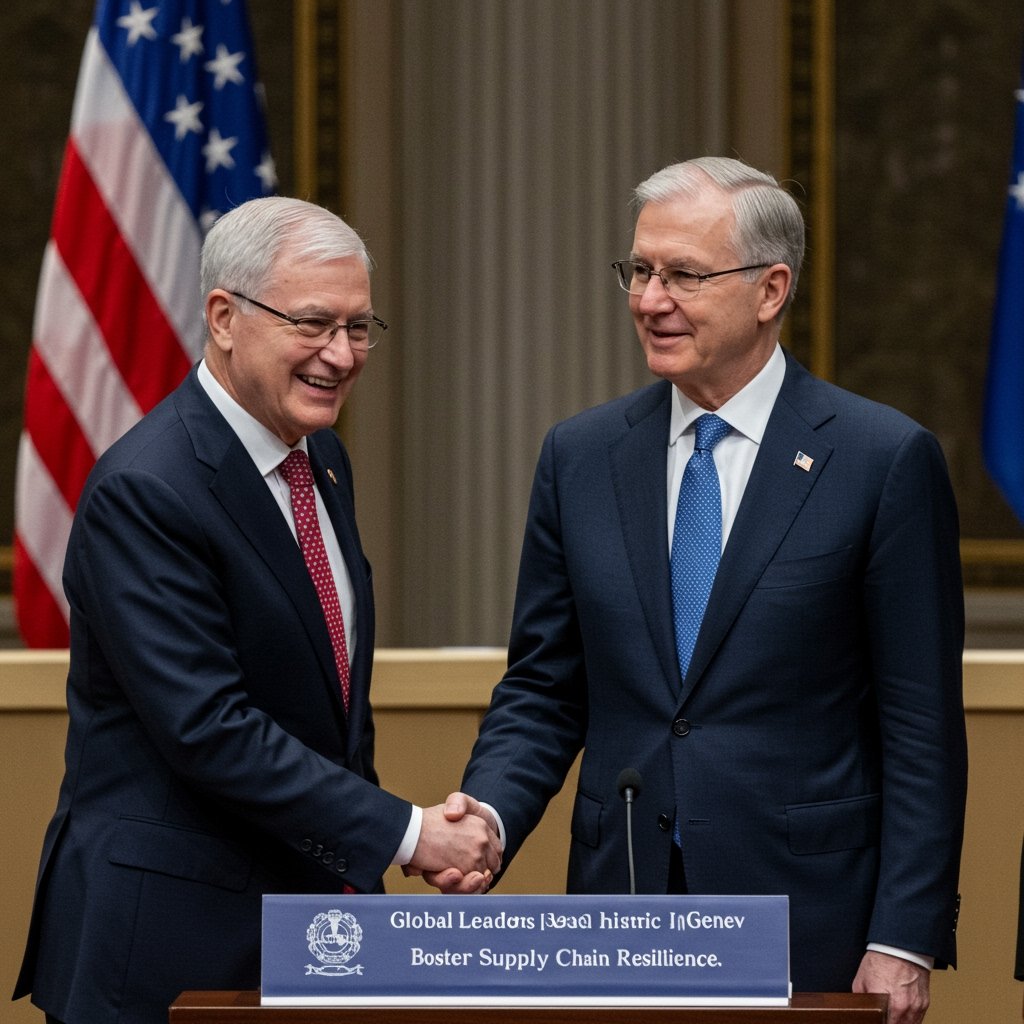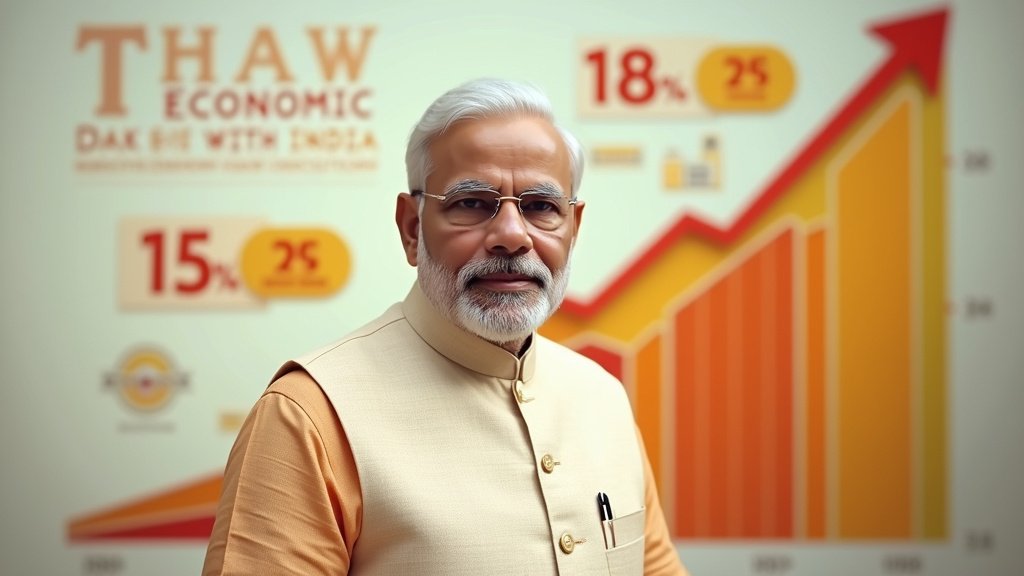Geneva Summit Culminates in Landmark Supply Chain Accord
Geneva, Switzerland – Following three days of intensive negotiations, global leaders on June 7, 2025, successfully concluded a pivotal international summit in Geneva, culminating in the signing of a landmark multilateral agreement. This accord is specifically designed to address the fragilities exposed in international supply chains in recent years, aiming to enhance stability and bolster global economic resilience against future disruptions.
The summit, which drew high-level representatives from over 50 nations, including major economic powerhouses such as the United States, the European Union bloc, China, Japan, and India, underscored a collective recognition of the urgent need for coordinated action. The COVID-19 pandemic, geopolitical tensions, and climate-related events have repeatedly strained global trade networks, leading to significant shortages, delivery delays, and contributing factors to inflationary pressures felt worldwide. This agreement represents a concerted effort to build a more predictable and reliable system for the movement of goods and services across borders.
A Comprehensive Framework for Future Stability
The newly signed agreement establishes a multifaceted international framework centered on proactive monitoring and rapid response. A key component is the creation of a new global surveillance system intended to track potential disruptions in real-time. This system will aggregate data from participating nations and international organizations, providing early warning signals for issues ranging from production slowdowns and transportation bottlenecks to port congestion and geopolitical risks affecting trade routes. The objective is to move from a reactive posture to one that anticipates and mitigates problems before they cascade through the global economy.
Furthermore, the accord addresses the financial implications of disruptions by establishing a multi-billion dollar emergency fund. This fund, which will be managed by the World Bank, is earmarked to provide rapid financial assistance to developing nations and economies particularly vulnerable to supply chain shocks. The intention is to help these countries maintain essential trade flows, support critical industries, and implement necessary infrastructure upgrades or logistical adjustments during times of crisis, thereby preventing localized issues from escalating into global shortages.
Digitization Mandate to Streamline Trade
Perhaps one of the most ambitious elements of the agreement is the mandated digitization of key trade documentation. Under the terms of the accord, all participating nations commit to transitioning essential trade-related paperwork, such as bills of lading, customs declarations, certificates of origin, and health inspections, into standardized digital formats by 2028. This initiative is expected to significantly reduce administrative burdens, cut transaction costs, improve transparency, and accelerate the movement of goods across borders by eliminating paper-based inefficiencies and delays that often plague international logistics. The shift to digital processes is also seen as a way to enhance security and reduce opportunities for fraud within the supply chain.
Delegates highlighted that the move towards digital documentation, coupled with the new monitoring framework, will create a more resilient and interconnected global trade ecosystem. The shared platform for digital documents is expected to facilitate smoother customs procedures and better coordination among various stakeholders in the supply chain, from manufacturers and shippers to logistics providers and end consumers.
Addressing Past Challenges, Building Future Resilience
The impetus for this agreement stems directly from the turbulent economic period experienced in recent years. The fragility of just-in-time inventory systems and the over-reliance on concentrated production hubs became acutely apparent during the pandemic and subsequent global events. Factories were forced to close, shipping costs skyrocketed, and essential goods, from medical supplies to consumer electronics, faced unprecedented delays and shortages. These issues not only disrupted industries but also fueled inflation, impacting the cost of living for billions worldwide.
By establishing mechanisms for better communication, pooled resources, and streamlined processes, the Geneva agreement seeks to build structural resilience into the global trading system. It aims to prevent the kind of widespread and prolonged disruptions that contributed to recent economic volatility. The participation of a diverse group of nations, representing a significant portion of global trade volume, is seen as crucial to the effectiveness of the accord.
Looking Ahead: Implementation and Impact
The focus now shifts to the implementation phase of the agreement. Participating nations will need to ratify the accord through their respective domestic legislative processes and begin the complex work of establishing the monitoring infrastructure, contributing to the emergency fund, and enacting the necessary changes to facilitate digital trade documentation by the 2028 deadline. The World Bank will play a critical role in operationalizing and managing the emergency fund, coordinating with member states to define eligibility criteria and distribution mechanisms.
The long-term success of the agreement will depend on sustained political will, international cooperation, and the effective functioning of the new institutions and digital systems. However, the signing of this agreement in Geneva on June 7, 2025, is widely regarded as a significant step towards creating a more stable, predictable, and resilient global trading environment, aiming to mitigate future shortages and temper inflationary pressures by ensuring the smooth flow of goods across the planet.




